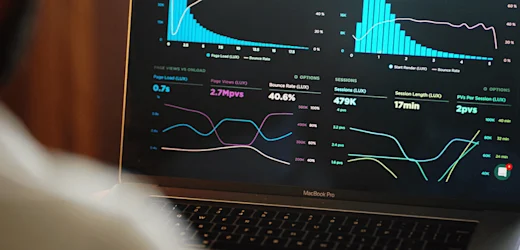How To Become A Data Analyst & Salary Guide
Want to become data analyst? Our career guide covers everything, from education and salary to necessary skills to help you start your data analyst career.

Turning data into insights and insights into actions is what businesses are all about, and data analysts are behind the scenes powering it.
From improving processes, cutting costs, identifying consumer trends, and outlining logistics issues, data analysts are a business’ best friend. Read on to discover more about this exciting career.
How to become a data analyst
Study
Study provides you with a solid understanding of data analysis as well as an appealing skill set for future employers. There are a few study paths you can take.
A Certificate IV in Business (Big Data) is a good stepping stone into the data analyst world. You’ll learn to analyse transactional and non-transactional big data to provide insights for organisations to better their business.
Gain experience and self-promote
Gaining hands-on experience is helpful in building yourself a good portfolio and growing your confidence. It’ll also show future potential employers that you’re keen.
To get yourself noticed, ensure that your LinkedIn profile is up to date and contact businesses to enquire about internships or voluntary roles. It’s often those that lead to permanent work.
Data analyst salary
The average adult salary for a data analyst in Australia based on a 42-hour week is $2,213. This equates to approximately $115,076 pro rata and earnings increase with experience.
source: Jobs and Skills 2024
What skills do you need to be a data analyst?
As a data analyst you need to have the following skills:
Logical and critical thinking skills
Exceptional technical skills
Problem solving skills
Great observational skills
Strong understanding of statistics and maths
Solid verbal and non-verbal skills
Proficient at computer programming
Pattern recognition skills
Able to work well under pressure
Good time management skills
Why study to become a data analyst through Swinburne Open Education?
Studying through Swinburne Open Education provides you with the perfect foundation for a career as a data analyst. With current educational materials available online you can study as and when it suits you and with access to expert lecturers, you’ll have support along the way.
The Certificate IV in Business (Big Data) is a nationally recognised qualification and will give you the skills to turn data into insights, and insights into action.
The course covers units such as understanding mathematical and statistical concepts, complex calculations and numerical data recording and interpretation of information from big data sources, as well as learning modern technology platforms to analyse big data and basic programming to conduct big data analysis.
Swinburne’s courses are developed in partnership with industry leaders to give you the most current skills for your future. This course qualifies you for roles such as big data analyst, business intelligence analyst, data and insights analyst and marketing and performance analyst.
Data analyst career FAQs
Completing a Certificate IV in Business (Big Data) offers a great insight into the world of data analysis. The skills learned from the course are easily transferable to the corporate world and employment opportunities are available.
However, if you want to increase your job prospects and earning potential, a degree is a step in the right direction.
The length of time it takes to become a data analyst really depends on the method and pathway of study chosen. A certificate study will take a year, whereas a bachelor will take up to four.
It is possible to work as a data analyst without experience. However, these opportunities are rare and depend on an organisation being willing to invest in someone’s education or upskilling. Qualifications open a lot more doors and opportunities and empowers you to search for jobs that you really want.
Yes. Programming languages form an integral part of a data analyst role so it’s imperative that a data analyst knows the most used languages.
No need to analyse your career options anymore. Contact us today for more information about studying data analytics. There are many choices to explore.
Related How-To Articles
How To Get A CyberSecurity Job